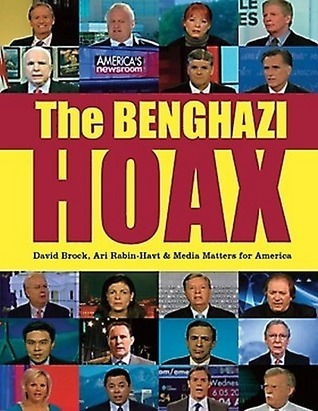Clifford Garstang's Blog, page 65
February 1, 2014
Trolling
 When I was a kid, my family every summer went to a Minnesota lake because my father enjoyed fishing. Every day we went trolling for bass and pike . . .
When I was a kid, my family every summer went to a Minnesota lake because my father enjoyed fishing. Every day we went trolling for bass and pike . . .
Oh. Not that kind of trolling?
INTERNET trolling is a whole other thing. Why do people do it?
Last night, someone posted a comment on this blog in response to my very brief post about the recent Robert Coover story in The New Yorker. I didn’t think much of the story, so I didn’t have much to say about it. The commenter, though, in classic troll mode, said my reading of the story was obtuse and that I was an ignoramus. Really? That’s an appropriate comment in a public forum? I could have deleted the comment, but I let it go and asked the troll to do better. (I’ve checked around the Internet, and I’m finding anyone saying anything particularly brilliant about the Coover story, but maybe Mr. Troll will have something to offer.)
Then, this morning, in a forum I participate in some times, a friend posted that he had been criticized online for his use of the past perfect tense in an Amazon.com review. What kind of a troll does that? (I looked at the usage and it looks right to me, even after referring to a couple of usage texts.) I Google this particular troll and harping on the use of the past perfect appears to be his thing. I guess everyone needs a hobby, but he should probably try bowling.
I’ve also been following an online discussion in my local newspaper. In response to a letter to the editor, one local curmudgeon made the argument that the Civil War was about “States’ Rights.” Another commenter, though, made the stronger argument that it was about slavery. The former, a familiar troll in that forum, quickly lost his cool and began with ad hominem attacks (go back where you came from, you’re ignorant, etc.) but the latter has kept his cool and stuck to the facts. (The only thing I contributed to the argument was a link to an article suggesting that 90-95% of historians–as opposed to Internet trolls–agree that the war was about slavery.)
And yesterday, an old friend of mine launched an argument on Facebook about President Obama and the Affordable Care Act. He was making spurious claims and didn’t respond well when confronted with facts. He got angry–not just at me, but at all the other people who pounced on him–and left. Deleted all his posts, “unfriended” me, and disappeared.
The Internet is a weird place.
January 28, 2014
恭喜发财– 新年快乐 Happy Year of the Horse!
2014 Reading: Understudies by Ravi Mangla
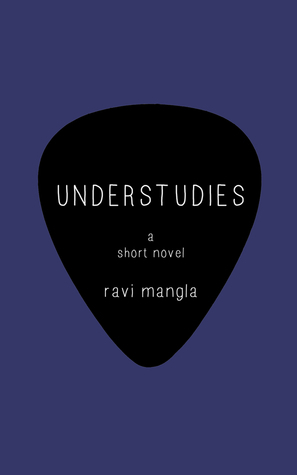 Understudies by Ravi Mangla
Understudies by Ravi Mangla
This short novel is a very quick read (or listen, as I did with the audio version). The (unlikable) narrator is a high school teacher whose live-in girlfriend, Missy, reveals pretty early in the book that she’s pregnant. The narrator isn’t thrilled, and he’s unsure what to do about his relationship with her. Among other things, a famous actress has moved into the neighborhood, a fact also noted by the narrator’s odd friend Chudley. Then there’s Palover, another teacher at the school, and a couple of kids he joins in a band.
One thing that makes the story interesting is that it is broken up into 140 or so very small pieces, some that don’t even seem particularly relevant to the plot. They are snapshots–scenes in the movie that is the narrator’s strange life.
It’s an enjoyable, fast read.
January 27, 2014
2014 Reading: The Other Wes Moore by Wes Moore
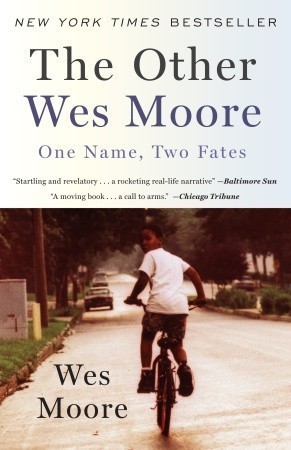 The Other Wes Moore: One Name, Two Fates by Wes Moore
The Other Wes Moore: One Name, Two Fates by Wes Moore
I rarely finish a book in a single day, but I did that with this one. It’s a compelling narrative about two men named Wes Moore. They’re from similar backgrounds in Baltimore, but a combination of choices and circumstances took them in different directions. The author, Wes Moore, a Rhodes Scholar and White House Fellow was headed down the wrong path when his mother took drastic action. He then read a book by Colin Powell that showed him that stories can change peoples lives–and Powell’s story changed his. The other Wes Moore, though, didn’t change, and the author has the opportunity to interview him in prison, where he is serving a life sentence.
There is a lot to absorb here about poverty, education, drugs, and opportunity in America. This book, like Powell’s, is potentially going to change lives.
2014 Reading: Haints by Clint McCown
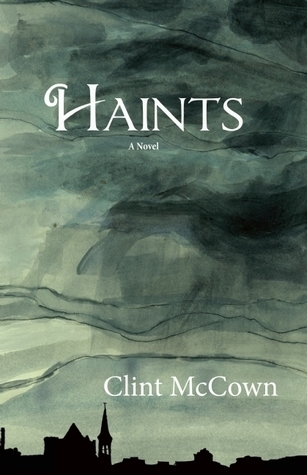 Haints by Clint McCown
Haints by Clint McCown
This book is a fine example of the novel in stories or story cycle that more resembles Winesburg, Ohio (the granddaddy of the genre) than most. The narrative, told through the eyes of several residents of the fictional town of Lincoln, TN, relates the aftermath of a violent tornado in the 1950s. Lincoln resembles Winesburg in many respects, but the events in this town are even more dramatic.
The book truly is a cycle–it begins with a prologue and ends with an epilogue, and the first and last chapters are about Herb Gatlin, a one-legged man with ties to most of the other characters. Herb, the book’s central figure, rescues Mary Jean McKinney during the tornado, risking his own life in the process. In the storm’s aftermath, an unidentified naked dead man is found in the town square, impaled on Herb’s wooden leg, creating a dual mystery. Who is the dead man? And what happened to Herb?
It’s a thoroughly enjoyable, incredible book, with some laugh-out-loud moments. (Some of the characters, such as Reverend Tyree and his wife, are over the top, intentionally so.) But it also handles some serious themes of memory and loss, forgiveness and revenge.
I’d been meaning to read this book for some time, but was finally prompted to do so because I’m moderating a panel at the Virginia Festival of the Book this year that features McCown. I recommend the book.
January 24, 2014
NPR Interview Aired Today
 I recently was interviewed by Martha Woodroof for “The Spark,” a program about creativity that airs on WMRA–the NPR station for the central Shenandoah Valley. The interview aired today. It’s only 9 minutes long, so give a listen.
I recently was interviewed by Martha Woodroof for “The Spark,” a program about creativity that airs on WMRA–the NPR station for the central Shenandoah Valley. The interview aired today. It’s only 9 minutes long, so give a listen.
(The interview is one of the results of having won the 2013 Library of Virginia Award for Fiction.)
January 23, 2014
Register for Split This Rock Poetry Festival
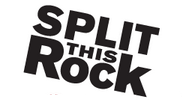 The Split This Rock Poetry Festival is fast approaching. The dates this year are March 27-30. Check out the great lineup for this year’s festival.
The Split This Rock Poetry Festival is fast approaching. The dates this year are March 27-30. Check out the great lineup for this year’s festival.
The earlybird registration deadline is Feb. 1, so register here now.
Featured Poets: Sheila Black, Franny Choi, Eduardo C. Corral, Gayle Danley, Natalie Diaz, Joy Harjo, Maria Melendez Kelson, Yusef Komunyakaa, Dunya Mikhail, Shailja Patel, Claudia Rankine, Tim Seibles, Myra Sklarew, Danez Smith, Anne Waldman, and Wang Ping.
January 22, 2014
2014 Reading: The Benghazi Hoax by David Brock, Ari Rabin-Havt, Media Matters
I highly recommend this book about the Benghazi attacks, especially if you are someone who has given the slightest credence to the right-wing claims of some sort of Obama/Clinton cover-up. (And right now it is FREE on Kindle–click on the link above.) The book demonstrates clearly that the Benghazi “scandal” is a hoax perpetrated by the GOP–first to damage Obama in the run up to the 2012 election and then to damage Hillary Clinton, perceived by them (rightly so) to be the biggest obstacle to their reclaiming the White House in 2016.
Benghazi was a tragedy. It wasn’t a cover-up. It wasn’t a scandal. It was manufactured by feckless idealogues out to “get” President Obama. The whole story is right here.
January 21, 2014
2014 Reading: The Biology of Luck by Jacob Appel
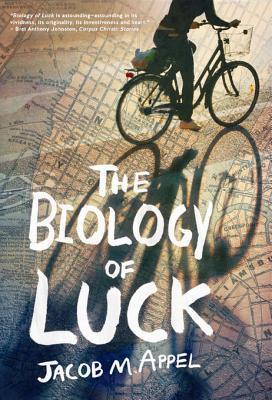 The Biology of Luck by Jacob Appel
The Biology of Luck by Jacob Appel
I enjoyed this New York City-based re-imagining of the Odyssey (or Joyce’s Ulysses). I published a review of the book in Prime Number Magazine.
2014 Reading: Zealot by Reza Aslan
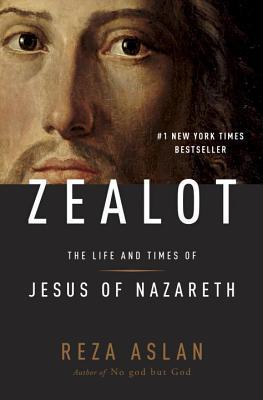 Zealot: The Life and Times of Jesus of Nazareth by Reza Aslan
Zealot: The Life and Times of Jesus of Nazareth by Reza Aslan
I found this to be a fascinating book and, because I didn’t have a religious upbringing, I learned a great deal about who all the players were, what happened when, and who was related to whom. (Until now, most of my knowledge of Jesus came from Godspell and Jesus Christ Superstar–still love both of those shows.)
But the thrust of the book, or at least my takeaway, is that much of the New Testament is fiction. Not only was the story of Jesus invented so that it meshed with prophecy, but Paul–perhaps a false apostle–took the fledgling Jesus movement into a direction that the early Church leaders–Peter and James and others–resisted. But for Paul, the movement might have remained closely aligned with Judaism. There’s much more to the book, and a lot of history to absorb.
Aslan has been criticized by many, of course, because his book really threatens the underpinnings of Christianity (to put it mildly). Given my atheism, though, I found it convincing. Read it for yourself.


